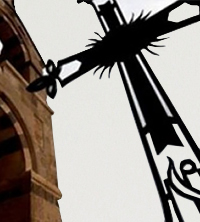
Snap parliamentary elections will be held in December. As a result of the April change of power, Armenia’s political field has been in the knockdown and is essentially ruined.
It was supposed that new snap elections will be held in May next year. At least, such were the predictions according to the current government program. The society would have come to senses, the revolutionary euphoria would have passed and it would be possible to make the most sober and conscious choices based on the parties’ programs.
However, the elections day was scheduled for December, for which our political elites were obviously not ready. Besides the Republican Party of Armenia (RPA), other parties are trying to come up with a “revolutionary” platform and declare that they aim to become a constructive opposition to the “Civil Contract”.
The situation of the RPA is even more complicated, as because of known reasons, it can not join the fan club of “revolutionaries”. RPA has made its only choice – to come up with conservative rhetoric. That party declared its main task the “protection” of the Armenian Apostolic Church and and fight against homosexuality propaganda. It seems they cannot find other goals. In fact, the main idea is traditional values. The “struggle” for Artsakh and resistance to any compromises to Azerbaijan makes sense, but from that position they will be able to act only when the new government stumbles on the Artshakh issue, yet the main problem is the elections. It is interesting that before the change of power it was the opposition of that time blaming the RPA for its defeatist position on the issue of Artsakh. The roles are changing.
At the last National Assembly sessions, the Republicans were flouting speeches against “homosexuality preachers”, and also made a legislative initiative to provide a Catholicos with a bodyguard. After the failure of this initiative, the government was blamed for the protection of the “sectarians”.
Political speculations are typical of all parliamentary countries, but could not the ruling force for more than 10 years have thought of a more up-and-coming political platform for itself? The Republican Party of Armenia is one of the best barometers of Armenia’s political downturn.